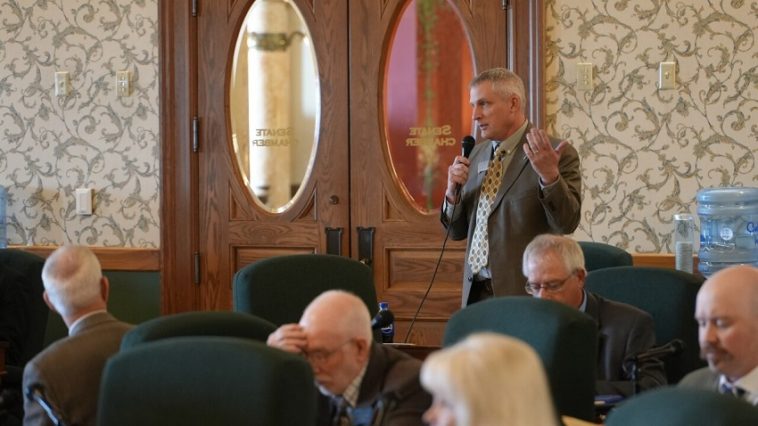Missoula, MT — In a pivotal vote on Monday, the Montana Senate voted down a bill that would have initiated the gradual phase-out of the state’s Medicaid expansion program, a move that could have had far-reaching consequences for healthcare access in the state.
Senate Bill 62, introduced by Sen. Carl Glimm, R-Kila, aimed to create a “soft unwind” of the Medicaid expansion, which was set to expire on June 30. Under the provisions of the bill, individuals already enrolled in the program would have been allowed to remain covered, as long as they continued to meet eligibility requirements. However, no new individuals would have been allowed to join the program. The measure was defeated by a vote of 20-30, with 12 Republicans joining all 18 Democrats in voting against it.
The defeat of SB 62 comes just one day after the Montana House of Representatives passed a separate bill, House Bill 245, which seeks to renew the Medicaid expansion program without a sunset date, effectively extending its life indefinitely. HB 245, sponsored by Rep. Ed Buttrey, R-Great Falls, passed with a 63-37 vote in both the initial and final rounds of approval.
Currently, approximately 76,188 adults are enrolled in the Medicaid expansion program in Montana. The program provides healthcare coverage to individuals making less than 138% of the federal poverty level, and it has been instrumental in increasing access to health services, particularly in rural areas.
Supporters of SB 62 argued that the growing uncertainty over federal funding for Medicaid expansion posed a significant risk to the state’s budget. They pointed to recent federal discussions about cutting back Medicaid funding, particularly under the Trump administration, as evidence that Montana could face an unsustainable financial burden in the near future. Sen. Glimm, who sponsored SB 62, warned that changes at the federal level could significantly reduce the 90% federal match currently received for Medicaid expansion, leaving the state to absorb much of the cost.
“There’s a rapidly changing landscape at the federal level,” Glimm said. “If we’re not prepared for that, we’ll be caught in a fiscal bind, and that’s something we need to address now.”
Sen. Jeremy Trebas, R-Great Falls, echoed these concerns, stressing that Montana needed to plan for potential federal cuts. “We can either get our state adjusted to the coming reality or continue to live in a fiscal fantasy,” Trebas said.
However, opponents of SB 62 pushed back, emphasizing that the bill was premature given the uncertainty surrounding federal Medicaid policy. Sen. Emma Kerr-Carpenter, D-Billings, cautioned against making such drastic decisions based on volatile federal circumstances.
“There’s a lot of uncertainty at the federal level right now,” Kerr-Carpenter said. “It seems absurd to make such a significant policy decision in such an unpredictable environment.”
In particular, Sen. Russ Tempel, R-Chester, expressed strong support for the continuation of Medicaid expansion, citing its critical role in supporting rural hospitals. In his district, which is home to several small hospitals, Medicaid expansion provides essential funding that keeps facilities operational. Tempel noted that one local hospital, operating on a razor-thin margin, relies on Medicaid expansion for approximately 11% of its funding.
“Without this funding, those hospitals could lose half a million dollars, threatening jobs and healthcare access for the community,” Tempel said. “We can’t afford to jeopardize that.”
As the debate continues, Montana lawmakers are caught between addressing immediate concerns over healthcare funding and planning for a future that could involve changing federal policy. For now, the rejection of SB 62 signals that Medicaid expansion will remain intact in Montana, but the future of the program remains uncertain as federal funding debates unfold.



